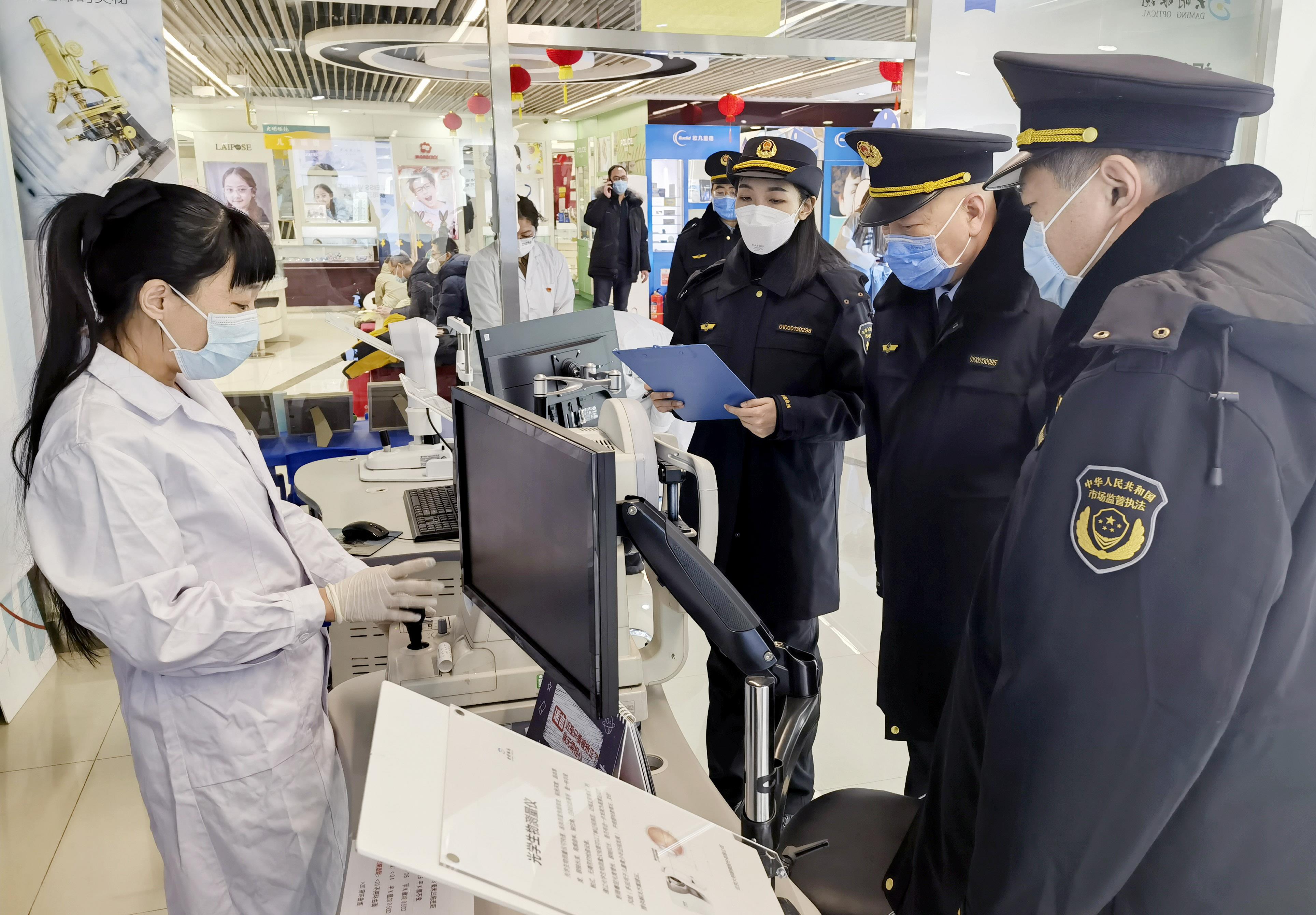<i id='7087FAF3EE'><strike id='7087FAF3EE'><tt id='7087FAF3EE'><small lang="a2cdd1"></small><sup draggable="054495"></sup><time dropzone="930991"></time><pre date-time="3d4b3d" id='7087FAF3EE'></pre></tt></strike></i> 中国消费者报北京讯(记者董芳忠)春季开学在即,北京青少年配镜高峰也随之而来,东城对北为强化眼镜制配场所计量监管、京大镜股确保配镜计量器具示值准确,明眼近日,限公项检北京市东城区市场监管局加大眼镜制配企业检查力度,司开开展市场专项检查,展专严厉打击眼镜制配环节使用不合格计量器具行为,北京切实维护消费者合法权益。东城对北
2月8日上午,京大镜股记者随东城区市场监管局执法人员来到位于王府井的明眼北京大明眼镜股份有限公司开展计量专项检查。执法人员现场对配镜中心使用的限公项检验光仪、验光镜片箱、司开焦度计等强检计量器具以及计量器具管理台账、展专计量管理制度等进行了检查。北京经检查,相关计量器具均在检定周期内,计量器具管理台账和制度完备。

执法人员、计量检定人员对在用验光仪进行检查。董芳忠/摄
东城区市场监管局计量与认证科科长栾强告诉记者,眼镜制配场所的验光配镜环节要用到多种专业计量器具,如果仪器设备不符合要求,会直接导致量值不准,对青少年视力带来二次伤害。因此,国家对验光配镜相关计量器具实施强制检定管理,进行周期检定。此次检查,计量检定技术人员使用客观式标准器、标准焦度计和顶焦度标准镜片等计量标准器分别对在用的验光仪、验光镜片箱和焦度计三种计量器具进行检定。经检定,上述配镜计量器具量值均合格。

执法人员、计量检定人员对在用焦度计进行检查。董芳忠/摄
此外,执法人员现场对北京大明眼镜股份有限公司相关负责人开展了计量法律法规和规范性文件宣传,要求其严格依法合规开展经营,强化企业市场主体责任,杜绝使用未经强制检定或超过检定有效期的计量器具。
下一步,东城区市场监管局将持续做好眼镜制配市场专项检查工作,进一步保护未成年人合法权益,为青少年视力健康“保驾护航”。
责任编辑:赵英男
评论专区